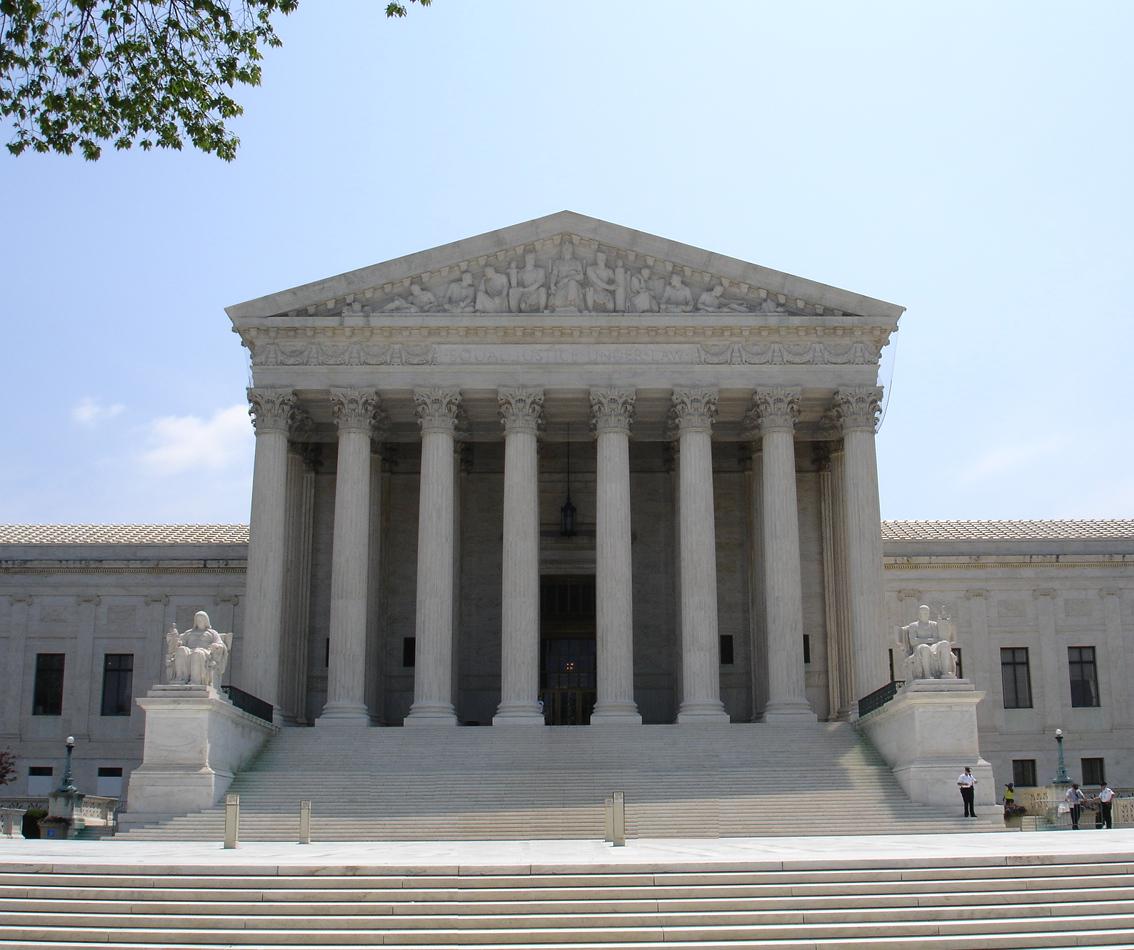The opening blast in a campaign to require the federal courts to operate within their authorized jurisdiction was unveiled last week in Montgomery, Alabama under the title the Constitution Restoration Act. The original sponsors of S. 2082 are Senators Richard Shelby, Zell Miller, Sam Brownback, and Lindsey Graham, and the original sponsors of the companion bill H.R. 3799 are Representatives Robert Aderholt and Mike Pence.
This legislation would clarify that the federal courts do not have jurisdiction to hear cases brought against a federal, state or local government or officer for acknowledging God. The bill is in response to the dozens of cases that have been filed across the country asking federal judges to declare the recitation in public schools of the Pledge of Allegiance unconstitutional because it includes the words “under God,” or asking that the display of the Ten Commandments in public buildings or parks be held unconstitutional.
The bill’s sponsors believe that the federal courts have no authority to hear such cases or render such a decision. No law bans the acknowledgment of God, and the U.S. Constitution delegates “all legislative powers” to the Congress and none to the courts.
These lawsuits are initiated under the pretense that they violate the First Amendment which states: “Congress shall make no law respecting an establishment of religion, or prohibiting the free exercise thereof.” The acknowledgment of God in the Pledge of Allegiance and the Ten Commandments is not an “establishment of religion.”
For decades, the Pledge of Allegiance has been recited daily by hundreds of thousands of schoolchildren, and depictions of the Ten Commandments appear on thousands of public properties including the U.S. Supreme Court. Unelected judges are assaulting our national respect for God against the wishes of Congress, state legislatures, and the American people.
We hear whispers in courthouse cloakrooms that lawsuits may soon target other acknowledgments of God. Our national motto is “In God We Trust,” and it’s enshrined on our currency.
In our national anthem, we sing “In God is our trust” and “Praise the Power that hath made and preserved us a Nation.” Nobody is confused about Who that Power is.
All three branches of the federal government, as well as our military, have always acknowledged God. Congress opens each session with a prayer; the President ends his speeches with “God bless America”; and the U.S. Supreme Court opens each day with “God save the United States and this Honorable Court.”
All public officials, including the President and all judges, swear an oath to uphold the Constitution “so help me God.” Most of us use that same oath when we swear to tell the truth.
In our nation’s founding document, the Declaration of Independence, America acknowledges God as our Creator, Supreme Lawgiver, Supreme Judge, and Protector. Fortunately, we haven’t yet heard of a lawsuit asking a judge to rewrite the Declaration.
God is specifically acknowledged in state constitutions. Among the powers reserved to the states under the Tenth Amendment is surely the power to write their own constitutions.
So how could a handful of activist judges in the last couple of years presume to ban the acknowledgment of God from documents, monuments, songs, expressions and practices that have been part of our culture throughout our history? The answer is that the federal courts, year by year, decision by decision, have been asserting judicial supremacy over the other branches of government, and Congress and the American people have been letting them get by with this unconstitutional grab for power.
The federal courts have been systematically dismantling the architecture of our unique constitutional republic with its Separation of Powers. James Madison believed that the preservation of liberty depends on the Separation of Powers, and that “its several constituent parts may, by their mutual relations, be the means of keeping each other in their proper places.”
The Constitution Restoration Act affirms the Separation of Powers by reasserting the rule, which had been properly observed by federal courts for two centuries, that they have no jurisdiction to consider cases involving the acknowledgment of God. As late as 1952 liberal Supreme Court Justice William O. Douglas declared: “We are a religious people whose institutions presuppose a Supreme Being.”
It is long past time for Congress to mandate that federal courts may not censor public acknowledgments of God, adding this to other “exceptions” and “regulations” to federal court jurisdiction. This is the way the framers of our Constitution intended that Congress would, as Alexander Hamilton wrote, keep the judiciary as the “least powerful” branch of government and see to it that “judges should be bound down by strict rules and precedents, which serve to define and point out their duty.”
The Constitution Restoration Act also orders federal courts not to rely on foreign laws, administrative rules or court decisions. Americans have been shocked to learn that five U.S. Supreme Court Justices have cited foreign sources, even though it is self-evident that U.S. judges should be bound by the U.S. Constitution and U.S. laws, rather than foreign ones.






